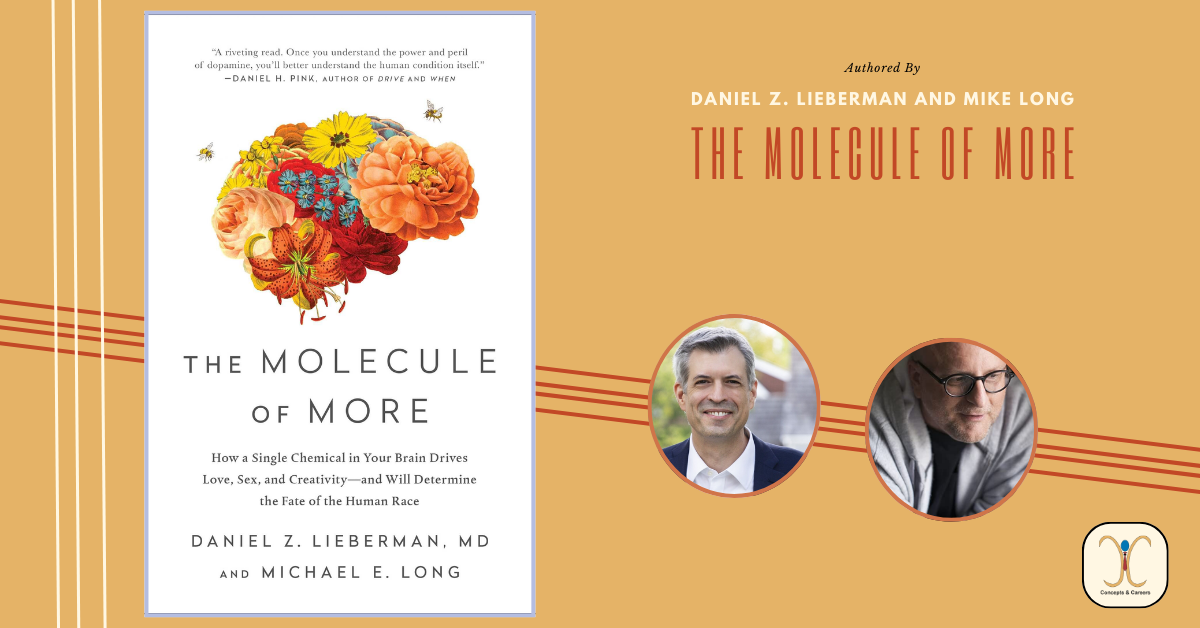- Have any questions?
- [email protected]
Decoding the Chemistry of Desire: A Deep Dive into “The Molecule of More” by Daniel Z. Lieberman and Michael E. Long

🔥 Flam: Igniting the Future of Marketing with Mixed Reality
May 16, 2025
LUZO: Digitizing India’s Luxury Wellness Experience
May 23, 2025“The Molecule of More” by Daniel Z. Lieberman and Michael E. Long is a captivating exploration of the role of dopamine – often referred to as the “molecule of more” – in driving human behavior, particularly in areas such as love, sex, and creativity. In this comprehensive analysis, we will delve into the key concepts, scientific insights, and real-world implications presented in Lieberman and Long’s groundbreaking book, offering readers a deeper understanding of the complex interplay between biology and behavior.
1. Unraveling the Mysteries of Dopamine:
Central to “The Molecule of More” is the exploration of dopamine, a neurotransmitter that plays a crucial role in the brain’s reward system. Lieberman and Long delve into the science behind dopamine, explaining how it influences motivation, pleasure, and desire, and how its dysregulation can lead to a range of behavioral and psychological disorders.
2. The Dopamine-Driven Pursuit of More:
The book examines how dopamine drives human behavior, particularly in the pursuit of pleasure, novelty, and reward. Lieberman and Long discuss how dopamine influences our desires and motivations, leading us to seek out new experiences, pursue romantic relationships, and strive for success and achievement in various areas of life.
3. Love, Sex, and the Chemistry of Desire:
Lieberman and Long explore the role of dopamine in shaping romantic relationships and sexual attraction. They discuss how dopamine influences the experience of love and desire, driving individuals to seek out romantic partners and engage in sexual activity. The authors also examine the impact of dopamine on relationship dynamics, infidelity, and attachment styles.
4. Creativity and Innovation:
“The Molecule of More” delves into the connection between dopamine and creativity, highlighting how dopamine influences our ability to think innovatively, take risks, and explore new ideas. Lieberman and Long discuss the role of dopamine in fostering creativity and problem-solving, as well as the potential downsides of dopamine-driven impulsivity and risk-taking behavior.
5. The Dark Side of Dopamine:
While dopamine is often associated with pleasure and reward, Lieberman and Long also explore its darker side. They discuss how dopamine dysregulation can lead to addiction, compulsive behavior, and mental health disorders such as depression, anxiety, and ADHD. The authors highlight the importance of understanding dopamine’s complex effects on the brain and behavior in order to address these challenges effectively.
6. Implications for the Future of Humanity:
In the final chapters of their book, Lieberman and Long reflect on the broader implications of dopamine research for the future of humanity. They discuss how our increasing understanding of dopamine’s role in human behavior could inform efforts to address societal challenges such as addiction, mental health disorders, and the pursuit of happiness and fulfillment.
“The Molecule of More” by Daniel Z. Lieberman and Michael E. Long offers a fascinating exploration of the role of dopamine in driving human behavior and shaping the human experience. Through its insights into love, sex, creativity, and more, the book provides readers with a deeper understanding of the complex interplay between biology, psychology, and culture in shaping our desires, motivations, and aspirations.





